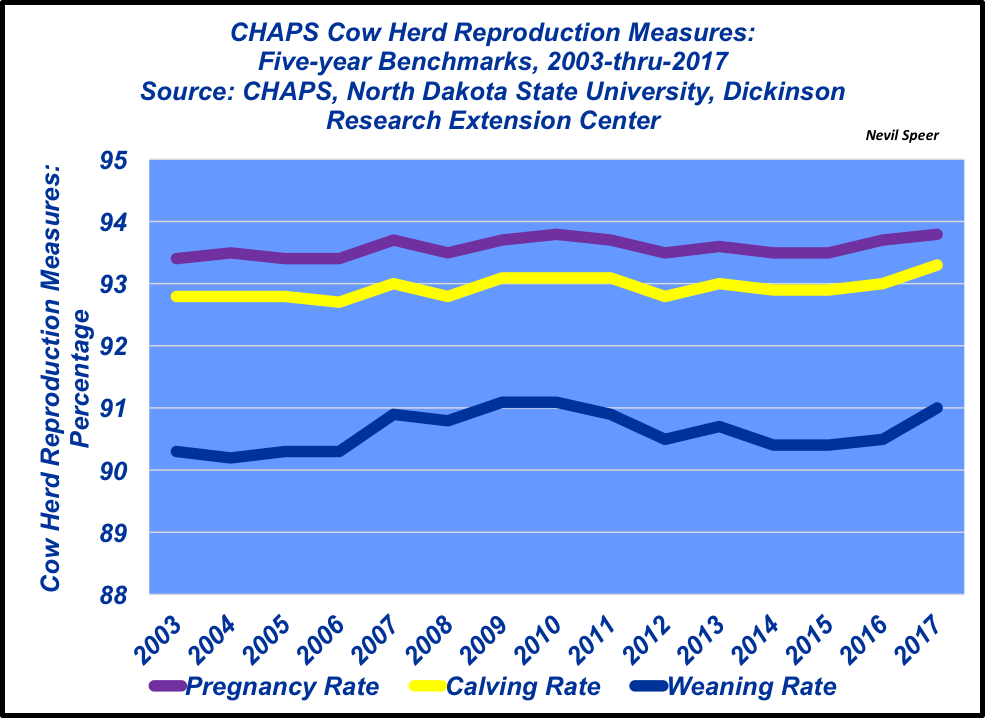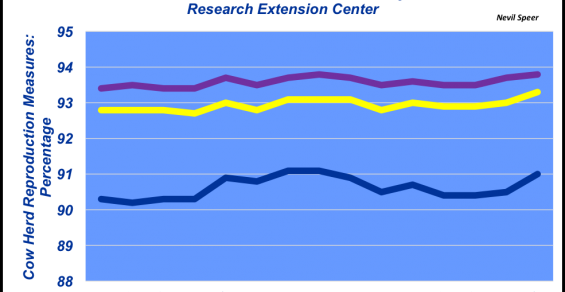What is the CHAPS program, you ask? The Extension team at North Dakota State University State explains that, “Beef producers and Extension professionals have been using the Cow Herd Appraisal Performance Software (CHAPS) for more than 30 years to establish beef production benchmarks to help beef producers and Extension professionals set and achieve their management goals. Each year, the CHAPS team at the NDSU Dickinson Research Extension Center provides the beef industry with five-year benchmarks. We present historical CHAPS benchmarks (2003-2017).”
With that in mind, this week’s illustration highlights five-year benchmark trends for cowherd reproduction measures in the CHAPS data during the past 15 years (pregnancy rate, calving rate, weaning rate). If you’re looking for something dramatic, you’ll be disappointed. In fact, the trend is flat to just slightly improved.
But that’s not disappointing. In fact, to the contrary, it’s a testament to North Dakota’s beef producers. CHAPS participants have proven their ability to achieve and maintain high levels of reproductive performance in the cowherd over time. The summary report notes that, “…consistency of the benchmarks [including other measures] is a hallmark of the beef business and that improvements are likely due to improvements in management and genetics.”

None of this is surprising. Similar trends are reported by the Kansas Farm Management Association. That is, cowherd trends in terms of performance are surprisingly consistent over time. For more on this see: Cowherd Trends are Locked and Loaded.
In both cases, the data is likely reflective of what’s occurring across the rest of the country. Perhaps even more important, we’ve also witnessed the cowherd making an important contribution to the overall improvement in beef quality (without sacrificing production) – thereby shoring up beef demand and pricing power over time.
How do you perceive these trends? Are they in line with your operation? Are they consistent with your perception of what’s occurring in the cow/calf sector? Do you foresee any of these trends changing in the coming years? Leave your thoughts in the comments section below.
Nevil Speer is based in Bowling Green, Ky., and serves as vice president of U.S. operations for AgriClear, Inc. – a wholly-owned subsidiary of TMX Group Limited. The views and opinions of the author expressed herein do not necessarily state or reflect those of the TMX Group Limited and Natural Gas Exchange Inc.




Leave A Comment